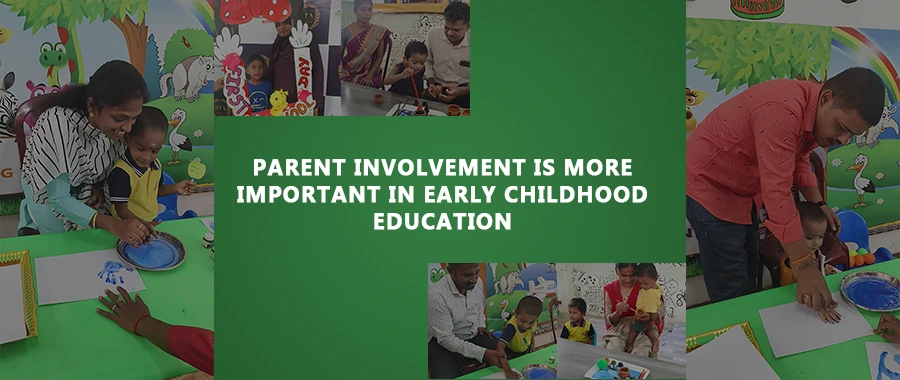Blog
Why early childhood education matters: a guide for parents

As parents, you play a vital role in your child’s early childhood education. By understanding its principles and practices, you can create a nurturing environment and support your child’s development during these crucial years. Early childhood education forms the foundation for lifelong learning, as children experience rapid brain development and acquire essential skills in their early years. Establishing consistent routines for meals, sleep, play, and learning provides stability and helps children thrive. Supporting social and emotional development is equally important—encourage positive interactions, teach empathy, and create a loving space where your child feels safe to express their emotions and build strong relationships through cooperative play.
Collaboration with educators is key to supporting your child’s learning journey. Maintain open communication, attend parent-teacher meetings, and seek guidance on how to reinforce learning at home. Sharing your observations and concerns with educators helps them better understand your child’s needs. By actively participating in your child’s education, you help them build confidence and a love for learning. Support their growth through structured routines, play-based learning, emotional support, and a literacy-rich environment. Remember, every child develops at their own pace—celebrate their progress, cherish these foundational years, and enjoy the shared journey of discovery and growth.
"Education is the foundation on which we build our future."
Sundar Pichai
Benefits
- Early childhood education lays the foundation for lifelong learning by introducing essential concepts like letters, numbers, and problem-solving through playful, engaging methods. These experiences help build a strong academic base and spark a love for learning that supports future success in school and beyond. Alongside academics, emotional and social development is fostered as children learn to express themselves, build friendships, and navigate their emotions in a safe, supportive setting—key skills that shape their self-confidence and emotional intelligence.
- Language and communication skills are developed through stories, songs, and meaningful conversations. These activities help children expand their vocabulary, express their ideas more clearly, and build confidence in speaking and listening. Early education also encourages independence and responsibility through simple daily tasks such as tidying up and following routines, helping children gain a sense of autonomy and preparing them for the structure of formal schooling.
- Creativity and curiosity are nurtured through imaginative play, music, and art, encouraging children to explore their environment, ask questions, and think outside the box. These activities foster problem-solving abilities and help children develop their unique interests and perspectives. At the same time, hands-on learning experiences support cognitive and motor skill development, improving memory, attention, coordination, and fine motor skills necessary for writing and other early academic tasks.
- Finally, early childhood education promotes a positive attitude toward learning. Children who enjoy learning in their early years are more likely to remain motivated and enthusiastic as they continue through school. With a strong start, supportive environment, and engaging activities, early education sets the tone for a lifelong journey filled with curiosity, growth, and academic success.
Our tips
Creating a learning-rich environment at home is key to supporting your child’s early education. Surround them with books, educational toys, and everyday opportunities to explore letters, numbers, colors, and shapes in fun ways. Read together daily to build language skills, strengthen your bond, and cultivate a lifelong love for reading. Encourage questions and exploration by welcoming “why” and “how” inquiries and discovering answers through simple experiments, nature walks, or meaningful conversations. Establish consistent routines for meals, sleep, and play to provide structure and security. Model social and emotional skills like kindness, patience, and empathy through your own actions, and use role-play or emotional discussions to reinforce them. Involve your child in daily tasks such as setting the table, organizing toys, or watering plants to build independence and responsibility. Lastly, stay connected with educators to gain insights and strategies that can help you support your child's learning and development at home.